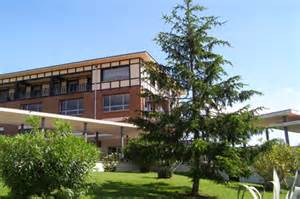Expressing preferences is not always easy.... This file will help you. EXPRESSING PREFERENCES … [Read more...]
How Often Do You Go To School?
An exercise to help children understand frequency in English. I hope it will help you. HOW OFTEN DO YOU GO TO SCHOOL … [Read more...]
It’s time…
This expression is translated into Spanish as “Ya es hora de que…” In English, we can use it in two different ways: Followed by infinitive It’s time we buy a new computer. (Ya es hora de comprar un ordenador) If we want to say who should do something, we use for + object + infinitive It’s time for the children to go to … [Read more...]
Purpose Clauses
We use certain clauses to show why somebody does something. These are called purpose clauses. They are introduced with the following words or expressions: to + infinitive He watched the news to be informed about what was going on In order to/So as to + infinitive (formal) She went to the library in order to borrow a … [Read more...]
Enough is Enough
Some people don't know when they have to use TOO and ENOUGH. I hope this explanation will help you. TOO and ENOUGH indicate degree. They are used with adjectives, adverbs and nouns. too + adjective/adverb too much/many + noun too much/many + of + pronoun/determiner adjective/adverb + enough enough … [Read more...]
We’ll Never Arrive TO
While in Spanish we say” Llegar a “, in English we never say, “Arrive to”. We use two different prepositions with this verb: “Arrive AT”, when we speak about a place or event, or” Arrive IN” in the case of a city or country. However, we use on many occasions “Get to” instead of “Arrive”. Here are some examples: I arrived IN Germany two days … [Read more...]
Some grammar for children
Just some exercises with basic grammar for children. I hope you'll find them useful. A-AN-PLURALS Prepositions of Place Present Simple … [Read more...]
The Future
“Future” can be either an adjective or a noun. When we use it as an adjective, it modifies a noun, and it is preceded by the article of the noun it modifies: The meeting will take place at a future date. Our decisions will affect the future generations. I will explain this issue in future articles. But “future” can also be used as … [Read more...]
Irregular Plurals
Most English nouns form their plural by adding either -S (houses, cars, clouds) or -ES (boxes, churches, buses). We say that these plural forms are regular. But not all nouns follow this standard pattern. In fact, some of the most common English nouns, such as: woman/women and child/children, have irregular plural forms. In the file below, … [Read more...]
A Pearl in AN Oyster
Both, "a" and "an" are articles which mean "one" or "a single". Therefore, they cannot be used with plural nouns. We saw a rabbits in Kensington Park Not Correct Some people think that we use "A" with singular countable nouns when they begin with a consonant and "AN" when the singular countable noun begins with a vowel. If this was so, we … [Read more...]









